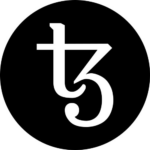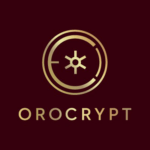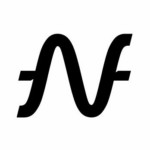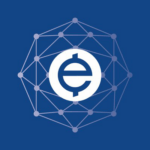Home Search
what is blockchain - search results
If you're not happy with the results, please do another search
InsureX
InsureX is a marketplace for insurance based on blockchain technology. It is aimed primarily at institutions such as insurers, reinsurers and brokers. Bringing these participants together directly results in an efficient, cost-effective and transparent marketplace. Smart contracts provide support for streamlined processes between multiple parties.
Tezos
Tezos is a secure, future-proof smart contract system. Because Tezos has a built-in consensus mechanism, its protocol can evolve, and incorporate new innovations over time, without the risk of hard forks splitting the market. Tezos is its own blockchain, not a derivative of any other blockchain. We didn’t just fork Bitcoin or Ethereum and add a layer onto it. We built our own from the ground up. Their smart contract language makes it easier to apply formal verification to any smart contract running on the Tezos blockchain. This allows developers to rule out weaknesses in code before uploading that code on the blockchain. Tezos relies on a less onerous, less computationally intensive, and less power-consuming proof-of-stake consensus algorithm, where bonded stakeholders validate transactions.
Orocrypt
Orocrypt is a Panamanian-based company that will issue tokenized precious metals. Tokens will be backed by securely stored and audited precious metals, convertible on demand, and easily tradable. Tokens are secured on the Ethereum blockchain and will be compatible with all Ethereum wallets. They can be bought or sold instantly and seamlessly. Orocrypt will launch gold-backed tokens, each representing 30 g of LBMA compliant bullion gold. In the future, we will expand to Silver, Platinum and bespoke tokens
Bitquence
Bitquence’s Mission is to make the daunting cryptocurrency market accessible to everybody, accelerating adoption of blockchain technology and democratizing ownership of cryptocurrencies.They make cryptocurrencies easier to purchase and transfer allowing the average individual to participate in the New Economy. They believe in the philosophical mission established by Satoshi Nakamoto. By creating a secure layer that is accessible to the average person, they put the power in the hands of the people – where it belongs.
Encrypgen
Gene-Chain offers blockchain enhanced security for safe cloud storage and sharing of genomic data.
GeoFunders
GeoFounders is a blockchain app store and software collective focused on building blockchain-related applications and services. Using tokens called GeoUnits (GUNS), revenue collected by the GeoFounders software catalogue is automatically divvied up for token holders via smart contracts and trusted oracles. A small portion of the revenue is cycled back into the collective to further increase the collective's application catalogue, which in turn increases the token value and revenue payouts. GeoFounders software leverages custom-made middleware to provide compatibility with a growing list of different blockchain platforms.
True Flip Lottery
True Flip is the international anonymous blockchain lottery with instant payouts, open source code, and transparent prize fund.
Compcoin
Compcoin is a trusted financial investment system that operates using a valuable blockchain Digital Asset to run a decentralized financial trading computer. Using Compcoin provides the capacity for automatically generated cash flows using AI.
SunContract
SunContract is a platform that directly connects energy producers and consumers into an energy pool based on smart contracts. The SunContract’s vision is to support a global self-sufficient energy community based on renewable energy by digitalization of electricity. With SNCs one can buy electricity through the SunContract Energy Pool. SunContract’s business model joins together the best features of blockchain technology (5 T’s: trust, transparency, traceability, time stamp and transactions) and renewable energy (5 D’s: digitalization, decarbonization, deregulation, decentralization and democratization) to create an entirely new services that will revolutionize the existing market. Decentralized energy market on the blockchain is only the first step of transforming energy distribution grid services in the future and will be followed by grid-flow optimization services, demand response services etc.
Exchange Union
Bridge digital currency exchanges around the world and realize investors’ cross-exchange trading, cross-exchange clearing, deposits and withdrawals among different digital currencies and assets. Improve trading efficiency and performance of exchanges and realize the market-oriented distribution of digital currencies’ liquidity and best price offers.First, bridge the exchanges in terms of trading, deposits, withdrawals and clearing through agreements among digital currency exchanges and offer discounts on trading fees; provide deals on credit and margin trading. Soon afterwards, build Exchange Union Chain and realize the full interconnection among digital currency exchanges through blockchain technique.





















